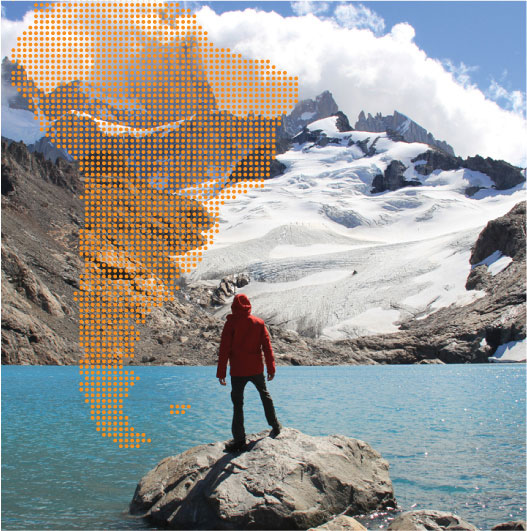
South America
TELL US WHERE YOU’RE GOING & WE’LL TELL YOU WHAT YOU NEED
There is no one-size-fits-all approach to travel vaccinations or medications. Every country poses different risks. The meds you need depend on where you go in the world.
Again this is the TMVC advantage. We are experienced, knowledgeable, and understand what you will confront on your trip.
Our client profile form will help identify the exact travel vaccines and meds you need when travelling to South America, and only those.

TRAVEL VACCINES TO CONSIDER
Chikungunya (IXCHIQ)
What is
Chikungunya is a viral illness transmitted by mosquitoes, causing symptoms like fever, joint pain, and rash. It is usually not fatal, but the joint pain can last for weeks or months, causing significant discomfort
HOW DO I GET IT?
Chikungunya is contracted through the bite of an infected Aedes mosquito, which is active during the day. The mosquitoes become infected when they bite a person already infected with the virus
WHAT HAPPENS?
Common symptoms include sudden fever, severe joint pain (especially in the hands, feet, and knees), headaches, rash, and muscle pain. Joint pain can persist for a long time in some cases, even after the fever subsides
WHAT CAN I DO ABOUT IT?
Get vaccinated
Minimize mosquito bites by using insecticide sprays and insect repellents containing at least 30% DEET
Limit your outdoor activities
Wear permethrin-treated clothing
Hepatitis A
WHAT IS IT?
A virus that infects the liver.
HOW DO I GET IT?
From foods and drinks that have been handled by people that carry the virus.
WHAT HAPPENS?
Hepatitis A varies in severity from a flu-like illness to requiring hospitalization.
It is rarely fatal.
WHAT CAN I DO ABOUT IT?
There is no treatment for hepatitis A.
Vaccination is safe and effective at preventing hepatitis A.
Hepatitis B
WHAT IS IT?
A virus that infects the liver.
HOW DO I GET IT?
You can catch it from unsterilized needles, sexual intercourse, unscreened blood transfusions, and other equipment like spa and tattooing tools that have not been sterilized effectively.
IS IT SERIOUS?
There is an immediate illness which can be serious and sometimes fatal.
But even after recovery, some people will carry the virus for life.
Cirrhosis (permanent liver damage) and liver failure can develop over years.
WHAT CAN I DO ABOUT IT?
Hepatitis B can be treated with a course of drugs that often lasts months.
The treatment itself can result in unpleasant side effects and is not always effective.
Some people do not respond to the treatment.
Vaccination is safe and effective in preventing hepatitis B.
Rabies
WHAT IS IT?
Rabies is a virus, a Lyssavirus.
HOW DO I GET IT?
90% of human infections are from infected dog bites.
WHAT HAPPENS?
The virus causes fever, headache, vomiting, and infects the nervous system and brain leading to involuntary muscle movement and a fear of water and sometimes air.
There is an incubation period before symptoms start, which can be from days to months, sometimes years.
It is 100% fatal once symptoms begin.
WHAT CAN I DO ABOUT IT?
Treatment for rabies is available after a bite but can be hard to find in remote areas or developing countries.
Rabies vaccination is available.
Treatment after a bite is still required however it is much less complicated and easier to find.
Travellers Diarrhea (Dukoral)
WHAT IS IT?
Travellers diarrhea is caused by a change of environment and differing sanitation standards.
HOW DO I GET IT?
From food and water.
WHAT HAPPENS?
Symptoms vary from mild loose stool to fever to blood in the stool and abdominal cramps with frequent diarrhea.
WHAT CAN I DO ABOUT IT?
Travellers diarrhea can be treated with over the counter treatments like Pepto-Bismol, Imodium and oral rehydration.
Antibiotics can be used for severe cases.
Dukoral is an oral vaccine that protects against a specific bacteria that is responsible for up to 30% of cases.
Typhoid
WHAT IS IT?
Typhoid is a disease caused by a bacteria called Salmonella.
HOW DO I GET IT?
From eating food contaminated with the bacteria.
IS IT SERIOUS?
Typhoid causes fever, abdominal pain, and intestinal bleeding which can lead to perforation of the bowel as well as neurological symptoms and joint pains.
Unsupported it can be fatal in vulnerable individuals.
WHAT CAN I DO ABOUT IT?
Typhoid can be treated with antibiotics, sometimes requiring weeks of treatment.
There is increasing resistance to antibiotics which is an ongoing concern.
Avoid undercooked foods to reduce the risk of catching it.
Vaccination effectiveness varies but can prevent up to 65% of cases.
Yellow Fever
WHAT IS IT?
A virus found in South America and Africa.
HOW DO I GET IT?
From the bite of a mosquito.
WHAT HAPPENS?
Yellow Fever affects multiple organs; heart, lung, and bowel and can result in uncontrolled bleeding in around 15% of people.
At this stage, up to 20-50% of people will die.
WHAT CAN I DO ABOUT IT?
There is no treatment for Yellow Fever.
Vaccination is the only effective way to prevent the disease.
*Some countries will deny entry without proof of vaccination.

PERU
Every year 75,000 visitors trek the Inca Trail to Machu Picchu. The lung-busting hike through the Sacred Valley will test your limits so exercise before you go and be aware of altitude sickness.
DID YOU KNOW?
YOU CAN BUY CARBON CREDITS TO OFFSET THE ENVIRONMENTAL IMPACT OF AIR TRAVEL
Guided treks across the South Patagonian Ice Field will test every bone in your body. These massive sheets of blue-green ice are a poignant reminder of the effects of global warming.
DO I NEED A FLU SHOT WHEN I TRAVEL ABROAD?
Yes! You may be travelling to a destination where the flu vaccine is not routine.
The flu season differs depending on where you go in the world. The effects of long-haul travel may pre-dispose you to infection.